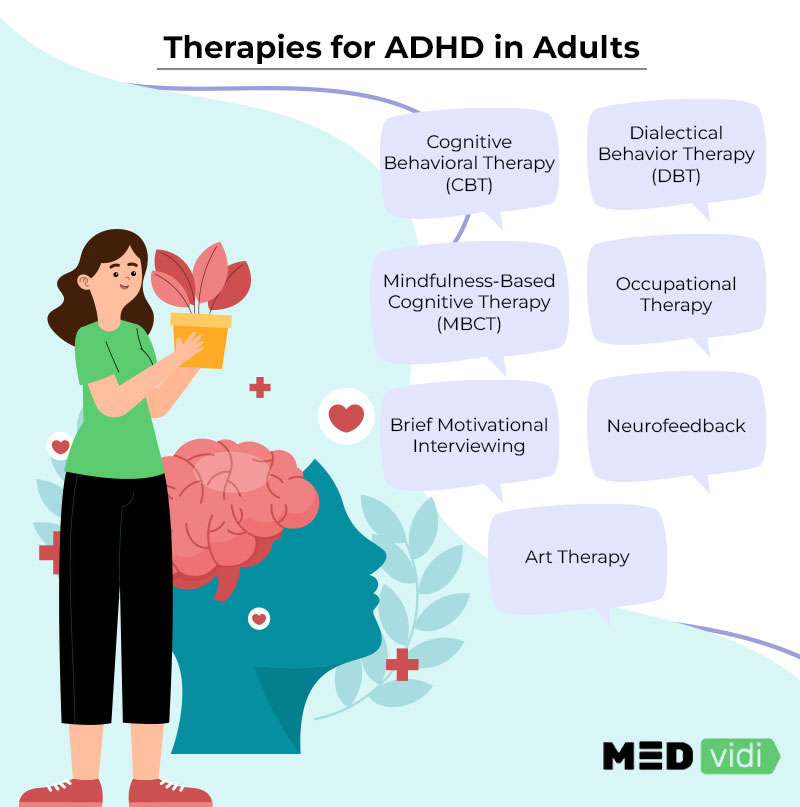Your Overview to Finding the Right ADHD Therapy for Long Lasting Outcomes
Navigating the intricacies of ADHD therapy needs a nuanced understanding of both the problem and the myriad options readily available for effective administration. It is vital to identify that what benefit one person might not necessarily produce the very same results for another. Therefore, a tailored strategy-- including professional guidance, medicine, behavioral approaches, and way of living changes-- comes to be extremely important. However, the trip toward determining the most suitable therapy plan can be fraught with challenges. What are the vital variables that affect effective outcomes, and exactly how can people guarantee they get on the right course?
Recognizing ADHD and Its Influence

In adults, ADHD can result in difficulties in workplace settings, influencing performance, time administration, and interpersonal partnerships. Frequently, undiagnosed or incorrectly managed ADHD can add to co-occurring mental health problems, such as stress and anxiety and anxiety, more complicating an individual's overall health.
The social assumption of ADHD can vary, leading to preconception and misconception, which might prevent people from looking for help. As recognition grows, it is important to cultivate an atmosphere that advertises understanding and support for those impacted by ADHD, emphasizing the demand for accurate medical diagnosis and customized techniques to reduce its impact on everyday life.
Introduction of Treatment Options
A comprehensive strategy to treating ADHD encompasses a selection of alternatives tailored to the person's distinct requirements. These alternatives can generally be categorized right into behavioral treatments, psychoeducation, and way of life modifications, together with pharmacological therapies that might be checked out later on.
Behavioral interventions, such as cognitive-behavioral therapy (CBT), concentrate on changing certain habits and developing coping approaches to take care of symptoms properly. Psychoeducation plays a critical role in encouraging both people and their families by supplying information about ADHD, its obstacles, and effective methods for support.
Way of life alterations can substantially impact ADHD management. Regular physical activity, a well balanced diet plan, and appropriate rest add to total well-being and symptom control. Mindfulness methods and leisure techniques can also boost focus and minimize impulsivity.
Assistance teams and family members treatment can promote a sense of area and understanding, aiding people really feel much less separated in their experiences. Each treatment option ought to be thought about combined with the person's preferences and scenarios, making sure an alternative strategy that promotes long-term success. Inevitably, the goal is to produce a personalized treatment strategy that addresses the specific difficulties connected with ADHD while improving overall lifestyle.
Medication: Pros and Cons
Medication plays an essential function in the therapy of ADHD, with various choices offered that can considerably ease signs and symptoms for numerous people. Stimulants, such as methylphenidate and amphetamines, are generally suggested and have actually shown performance in psychiatric care near me enhancing focus, decreasing impulsivity, and improving total habits. These medications function by enhancing dopamine and norepinephrine degrees in the mind, which are commonly dysregulated in those with ADHD.
However, making use of medication is not without its obstacles. Some people may experience side results, including sleep problems, lowered appetite, or raised stress and anxiety. Locating the right dose can be an experimental process, requiring close surveillance by medical care professionals. Furthermore, not all individuals respond to energizer drugs, leading some to discover non-stimulant choices, which may have a delayed beginning of activity or various adverse effects.
It is essential for individuals and their households to consider these benefits and drawbacks very carefully. Balancing the benefits of symptom management against prospective side results is essential for achieving optimal treatment outcomes. Collaboration with healthcare service providers can facilitate enlightened decisions, ensuring that medication belongs to a comprehensive ADHD monitoring strategy.
Behavior Modification Methods

One generally used approach is Cognitive Behavior Treatment (CBT), which aids people recognize and transform adverse idea patterns that add to ADHD-related obstacles. Therapist for ADHD. Via CBT, customers find out to set realistic goals, manage time efficiently, and establish business systems
An additional reliable strategy is Moms and dad Administration Training (PMT), which informs parents on exactly how to reinforce positive actions and lower adverse ones with constant self-control and communication strategies. This approach promotes a helpful home environment that urges behavioral improvements.
Social abilities training is likewise integral, aiding people with ADHD navigate social interactions extra properly. Role-playing and modeling proper behaviors can enhance social capability and minimize anxiety in social scenarios.
Way Of Living Modifications for Better Management
How can way of life changes dramatically boost the management of ADHD signs? Implementing calculated lifestyle adjustments can bring about considerable renovations in focus, organization, and psychological regulation for individuals with ADHD.
To start with, establishing an organized everyday regimen aids in creating predictability, which can ease feelings of overwhelm. Regular timetables for meals, study, and rest can boost daily performance.
Including routine exercise is additionally critical, as exercise has actually been revealed to improve dopamine degrees, enhancing attention and inspiration (Therapist for ADHD). Going for at the very least half an hour of modest workout most days can be helpful
Nutrition plays a crucial duty also. A well balanced diet regimen abundant in omega-3 fats, entire grains, and protein can support cognitive feature. Limiting refined sugars and high levels of caffeine may reduce symptoms, as these can lead to power crashes and impatience.
Verdict
In verdict, locating the best ADHD therapy necessitates a diverse technique that takes into consideration individual requirements and preferences. A combination of medicine, behavior treatment, and lifestyle adjustments can substantially enhance sign administration and general health. Engaging in psychoeducation and establishing structured routines further sustains efficient therapy approaches. Cooperation with health care specialists and open communication with assistance networks are crucial parts in navigating the complexities of ADHD Click This Link monitoring, ultimately resulting in enduring results and enhanced quality of life.